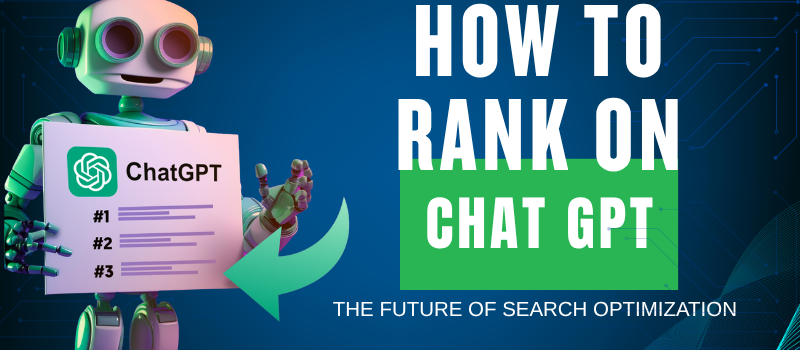If you thought SEO was only about ranking on
Google, think again. The way people search for information online is evolving
rapidly — and ChatGPT is at the center of this transformation. Users no longer
type keywords; they ask direct questions and expect precise, helpful
answers.
This shift presents a new challenge: how do you
rank on ChatGPT while appearing credible, authoritative, and trustworthy?
1. Understand How ChatGPT Sources Information
Unlike traditional search engines that index
web pages and rank them using backlinks, ChatGPT gathers insights from a mix of
sources — its training data, real-time web access (for updated
models), and the context of your query.
While you can’t “submit” your website
directly, you canoptimize your content so that it becomes the type of
authoritative information ChatGPT references.
In essence: You’re optimizing for understanding
and credibility, not just algorithms.
2. Focus on Clarity, Authority, and E-E-A-T
To rank well on AI-driven tools like ChatGPT,
your content must reflect Experience, Expertise, Authority, and Trustworthiness:
·
Experience: Share real-world examples or case studies.
“Having worked with dozens of
businesses to optimize content for AI, we’ve seen firsthand how clear,
authoritative writing gets referenced by ChatGPT.”
·
Expertise: Include actionable tips, strategies, and factual
knowledge.
“Structuring content around
natural questions and long-tail phrases improves discoverability across
AI-driven search.”
·
Authority: Build credibility with citations, references, and
mentions.
“As Google’s Search Quality
Guidelines emphasize, authoritative content often ranks higher in AI answers.”
·
Trustworthiness: Be transparent and honest; provide disclaimers, clear
contact info, and reliable advice.
“Our strategies follow industry
best practices, designed to provide actionable guidance while maintaining full
transparency.”
By demonstrating E-E-A-T, your content is more likely
to be trusted by AI and humans alike.
3. Use Conversational Keywords
Search is becoming question-based.
Instead of targeting generic keywords like “best SEO company India,” focus on natural,conversational phrases:
·
“How can small businesses use AI
for SEO?”
·
“What is ChatGPT SEO and how does
it work?”
Incorporate these phrases in blogs, FAQs, and
product pages. This not only improves AI visibility but also matches how realpeople search today.
4. Build a Strong Digital Footprint
ChatGPT often cross-references trusted
sources. Ensure your brand is visible across:
·
LinkedIn, YouTube, and industry
directories
·
Backlinks from authoritative
blogs or news portals
·
Consistent NAP (Name, Address,
Phone) everywhere online
A strong, credible presence online signals
authority and trustworthiness, which AI models consider when referencing
content.
5. Create Content That’s Useful
The AI era rewards helpful
content. Focus on guides, how-tos, FAQs, and case studies. Ask
yourself before publishing:
·
Does this content genuinely
answer a user’s question?
·
Would someone reference this as a
reliable source?
If yes, your content is ready for AI ranking.
6. Keep Evolving
AI search is constantly learning. Businesses
that experiment with structured data, conversational optimization, and clear authority
signals will stay ahead.
Ranking on ChatGPT isn’t about gaming the
system — it’s about earning trust through experience, expertise, authority, and
transparency.
Your next customer is searching for you right
now. Make sure they can find you.
Book
a free SEO consultation with Ksquare99 today!
Website
– https://ksquare99.com











